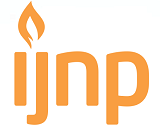The Factors Influencing Fatigue of Postpartum Mothers
DOI:
https://doi.org/10.18196/ijnp.v5i1.10134Keywords:
postpartum, postpartum fatigue, risk factorsAbstract
Background: Postpartum mothers are likely to experience physical and psychological changes. A new role as a parent provides new tasks for mothers in baby care. Most postpartum mothers experience fatigue after labor. Postpartum fatigue is affected by the baby and family. This study aims to identify factors associated with postpartum fatigue.
Method: A cross-sectional study was designed. The sample in this research was 102 postpartum mothers who lived with her family in Bantul Yogyakarta. They were taken by using simple random sampling. The data were collected through the Postpartum Fatigue Scale (PFS), infant characteristic questionnaire (ICQ), and social support questionnaire. Factors associated with postpartum fatigue were analyzed using multiple logistic regressions.
Results: Most of the respondents had a moderate level of fatigue (48%). Social support was found significant as the determinant factor of postpartum mother (AOR=4,38, 95% CI 1,709 – 11,256, p= 0,002).
Conclusion: Respondents with a low social support level showed a significantly higher level of postpartum fatigue than respondents with good social support. It is essential to assist the family in helping mothers in infant care and postpartum care in the postpartum period. The factor associated with postpartum fatigue included infant temperament and family income.
References
Aaronson, L. S., Teel, C. S., Cassmeyer, V., Neuberger, G. B., Pallikkathayil, L., Pierce, J., Press, A. N., Williams, P. D., & Wingate, A. (1999). Defining and Measuring Fatigue. Image: The Journal of Nursing Scholarship, 31(1), 45–50. https://doi.org/10.1111/j.1547-5069.1999.tb00420.x
Astuti, Y., Rachmawati, I. N., & Rahma, H. (2017). The Correlation Between Infant Temperament and Sleep Quality of Postpartum Mother in Primary Health Care Prambanan and Jogonalan Klaten Indonesia. Advanced Science Letters, 23(12), 12571–12574. https://doi.org/10.1166/asl.2017.10819
Aytac, S. H., & Yazici, S. (2020). The Effect of Social Support on Pregnancy and Postpartum Depression. 13(1), 746.
Badr, H. A., & Zauszniewski, J. A. (2017). Meta-analysis of the predictive factors of postpartum fatigue. Applied Nursing Research, 36, 122–127. https://doi.org/10.1016/j.apnr.2017.06.010
Bakker, M., van der Beek, A. J., Hendriksen, I. J. M., Bruinvels, D. J., & van Poppel, M. N. M. (2014). Predictive factors of postpartum fatigue: A prospective cohort study among working women. Journal of Psychosomatic Research, 77(5), 385–390. https://doi.org/10.1016/j.jpsychores.2014.08.013
Bates, J. E., Freeland, C. A. B., & Lounsbury, M. L. (1979). Measurement of Infant Difficultness. Child Development, 50(3), 794–803. JSTOR. https://doi.org/10.2307/1128946
Bellieni, C. (2016). The Best Age for Pregnancy and Undue Pressures. Journal of Family & Reproductive Health, 10(3), 104–107.
Chen, X., & Schmidt, L. (2015). Temperament and Personality. In Social emotional, and personality development. Handbook of child psychology and developmental science (Vol. 3, pp. 152–200). https://doi.org/10.1002/9781118963418.childpsy305
Creti, L., Libman, E., Rizzo, D., Fichten, C. S., Bailes, S., Tran, D.-L., & Zelkowitz, P. (2017). Sleep in the Postpartum: Characteristics of First-Time, Healthy Mothers. Sleep Disorders, 2017, 1–10. https://doi.org/10.1155/2017/8520358
Erbaba, H., & Pinar, G. (2020). Association of perceived social support and maternal adaptation with postpartum depression in mothers of infants hospitalized in neonatal intensive care units. Journal of Neonatal Nursing. https://doi.org/10.1016/j.jnn.2020.11.005
Fata, S., & Atan, S. U. (2018). The relationship between fatigue and breastfeeding self-efficacy. Nigerian Journal of Clinical Practice, 21(11), 1408. https://doi.org/10.4103/njcp.njcp_366_17
Giallo, R., Seymour, M., Dunning, M., Cooklin, A., Loutzenhiser, L., & McAuslan, P. (2015). Factors associated with the course of maternal fatigue across the early postpartum period. Journal of Reproductive and Infant Psychology, 33(5), 528–544. https://doi.org/10.1080/02646838.2015.1021769
Gudayu, T. W., & Araya, B. M. (2019). Outcomes among Mothers Who Gave Birth in the Health Facility: Does Birth Preparedness and Complication Readiness Have a Role? Obstetrics and Gynecology International, 2019, 1–6. https://doi.org/10.1155/2019/5147853
Having a Baby After Age 35: How Aging Affects Fertility and Pregnancy. (n.d.). Retrieved April 16, 2021, from https://www.acog.org/en/womens-health/faqs/having-a-baby-after-age-35-how-aging-affects-fertility-and-pregnancy
Henderson, J., Alderdice, F., & Redshaw, M. (2019). Factors associated with maternal postpartum fatigue: An observationalstudy. BMJ Open, 9(7), e025927. https://doi.org/10.1136/bmjopen-2018-025927
Huang, I.-C., Anderson, M., Gandhi, P., Tuli, S., Krull, K., Lai, J.-S., Nackashi, J., & Shenkman, E. (2013). The Relationships Between Fatigue, Quality of Life, and Family Impact Among Children With Special Health Care Needs. Journal of Pediatric Psychology, 38(7), 722–731. https://doi.org/10.1093/jpepsy/jst016
Insana, S. P., Garfield, C. F., & Montgomery-Downs, H. E. (2014). A Mixed-Method Examination of Maternal and Paternal Nocturnal Caregiving. Journal of Pediatric Health Care, 28(4), 313–321. https://doi.org/10.1016/j.pedhc.2013.07.016
Iwata, H., Mori, E., Sakajo, A., Aoki, K., Maehara, K., & Tamakoshi, K. (2018). Course of maternal fatigue and its associated factors during the first 6 months postpartum: A prospective cohort study. Nursing Open, 5(2), 186–196. https://doi.org/10.1002/nop2.130
Iwata, S., Kinoshita, M., Fujita, F., Tsuda, K., Unno, M., Horinouchi, T., Morokuma, S., Saitoh, S., & Iwata, O. (2019). Peripartum depression and infant care, sleep and growth. Scientific Reports, 9. https://doi.org/10.1038/s41598-019-46563-4
Khatun, F., Lee, T. W., Rani, E., Biswash, G., Raha, P., & Kim, S. (2018). The Relationships among Postpartum Fatigue, Depressive Mood, Self-care Agency, and Self-care Action of First-time Mothers in Bangladesh. Korean Journal of Women Health Nursing, 24(1), 49–57. https://doi.org/2018.24.1.49
Kim, M.-E., & Hur, M.-H. (2014). Sleep Quality, Fatigue, and Postpartum Depression of Mother at Six Months after Delivery. Korean Journal of Women Health Nursing, 20(4), 266. https://doi.org/10.4069/kjwhn.2014.20.4.266
Kılıç, M., Özorhan, E. Y., Apay, S., Çapik, A., Ağapınar, S., & Özkan, H. (2015). Comparison of Fatigue Levels of Postratum Women According to the Birth Method. Undefined. /paper/Comparison-of-Fatigue-Levels-of-Postratum-Women-to-K%C4%B1l%C4%B1%C3%A7-%C3%96zorhan/56a267a1ae3f59fc1d928c07d3a6fe2ec546ac7c
Kusumasari, R. V. (2018). Kelelahan Postpartum Antara Ibu Primipara dan Multipara di Wilayah Kerja Puskesmas Piyungan Kabupaten Bantul: Comparative Study. Health Sciences and Pharmacy Journal, 2(1), 16. https://doi.org/10.32504/hspj.v2i1.23
Milligan, R. A., Parks, P. L., Kitzman, H., & Lenz, E. R. (1997). Measuring women’s fatigue during the postpartum period. Journal of Nursing Measurement, 5(1), 3–16.
Molina-García, L., Hidalgo-Ruiz, M., Arredondo-López, B., Colomino-Ceprián, S., Delgado-Rodríguez, M., & Martínez-Galiano, J. M. (2019). Maternal Age and Pregnancy, Childbirth and the Puerperium: Obstetric Results. Journal of Clinical Medicine, 8(5), 672. https://doi.org/10.3390/jcm8050672
Negron, R., Martin, A., Almog, M., Balbierz, A., & Howell, E. A. (2013). Social Support During the Postpartum Period: Mothers’ Views on Needs, Expectations, and Mobilization of Support. Maternal and Child Health Journal, 17(4), 616–623. https://doi.org/10.1007/s10995-012-1037-4
Saragih, B., Hapsari, E. D., & DW, S. (2015). Hubungan kelelahan dengan postpartum blues pada ibu postpartum pasca gempa di wilayah puskesmas Jetis Kabupaten Bantul [Universitas Gadjah Mada]. http://etd.repository.ugm.ac.id/home/detail_pencarian/86536
Senol, D. K., Yurdakul, M., & Ozkan, S. A. (2019). The effect of maternal fatigue on breastfeeding. Nigerian Journal of Clinical Practice, 22(12), 1662. https://doi.org/10.4103/njcp.njcp_576_18
Wilson, N., Lee, J. J., & Bei, B. (2019). Postpartum fatigue and depression: A systematic review and meta-analysis. Journal of Affective Disorders, 246, 224–233. https://doi.org/10.1016/j.jad.2018.12.032
Wilson, N., Wynter, K., Anderson, C., Rajaratnam, S. M. W., Fisher, J., & Bei, B. (2019). Postpartum fatigue, daytime sleepiness, and psychomotor vigilance are modifiable through a brief residential early parenting program. Sleep Medicine, 59, 33–41. https://doi.org/10.1016/j.sleep.2019.01.012
Yesilcinar, I., Yavan, T., Karasahin, K. E., & Yenen, M. C. (2017). The identification of the relationship between the perceived social support, fatigue levels and maternal attachment during the postpartum period. The Journal of Maternal-Fetal & Neonatal Medicine, 30(10), 1213–1220. https://doi.org/10.1080/14767058.2016.1209649
Zeifman, D. M., & St James-Roberts, I. (2017). Parenting the Crying Infant. Current Opinion in Psychology, 15, 149–154. https://doi.org/10.1016/j.copsyc.2017.02.009
Downloads
Additional Files
Published
Issue
Section
License
License
Articles published in the IJNP (Indonesian Journal of Nursing Practices) are licensed under a Attribution 4.0 International (CC BY 4.0) license. You are free to:
- Share — copy and redistribute the material in any medium or format.
- Adapt — remix, transform, and build upon the material for any purpose, even commercially.
This license is acceptable for Free Cultural Works. The licensor cannot revoke these freedoms as long as you follow the license terms. Under the following terms:
Attribution — You must give appropriate credit, provide a link to the license, and indicate if changes were made. You may do so in any reasonable manner, but not in any way that suggests the licensor endorses you or your use.
- No additional restrictions — You may not apply legal terms or technological measures that legally restrict others from doing anything the license permits.
Copyright
Authors who publish with IJNP (Indonesian Journal of Nursing Practices) agree to the following terms:
- Authors retain copyright and grant IJNP (Indonesian Journal of Nursing Practices) the right of first publication with the work simultaneously licensed under an Attribution 4.0 International (CC BY 4.0) that allows others to remix, adapt and build upon the work with an acknowledgment of the work's authorship and of the initial publication in IJNP (Indonesian Journal of Nursing Practices).
- Authors are permitted to copy and redistribute the journal's published version of the work (e.g., post it to an institutional repository or publish it in a book), with an acknowledgment of its initial publication in IJNP (Indonesian Journal of Nursing Practices).














